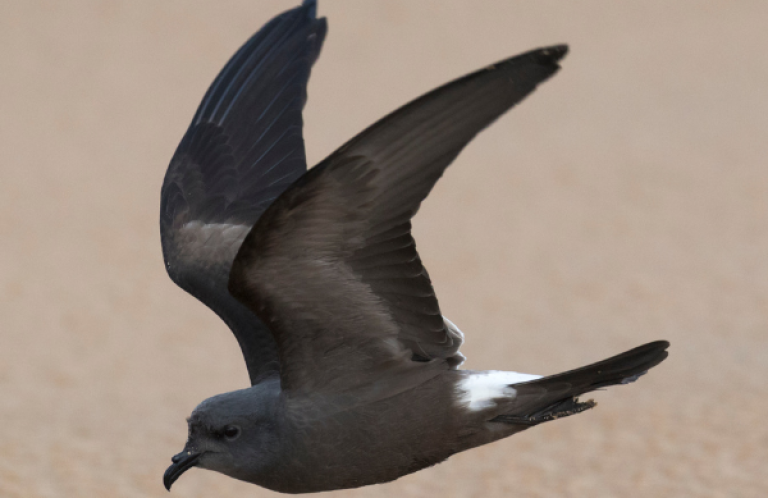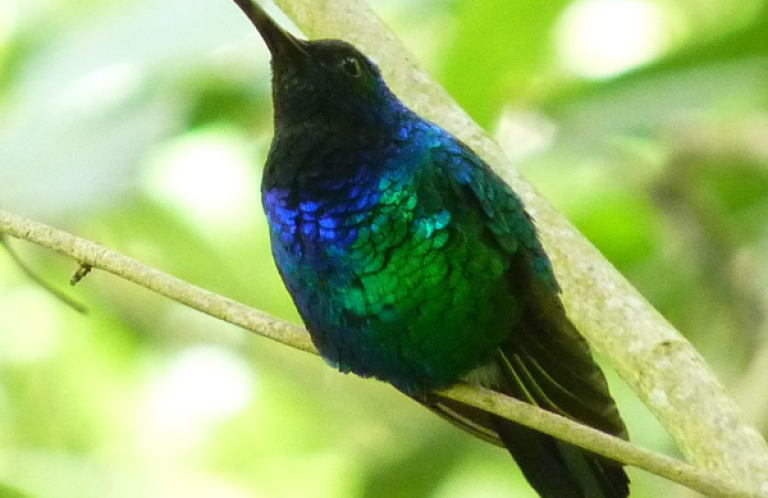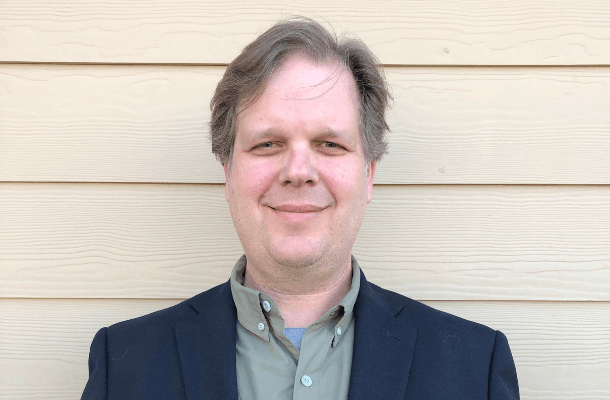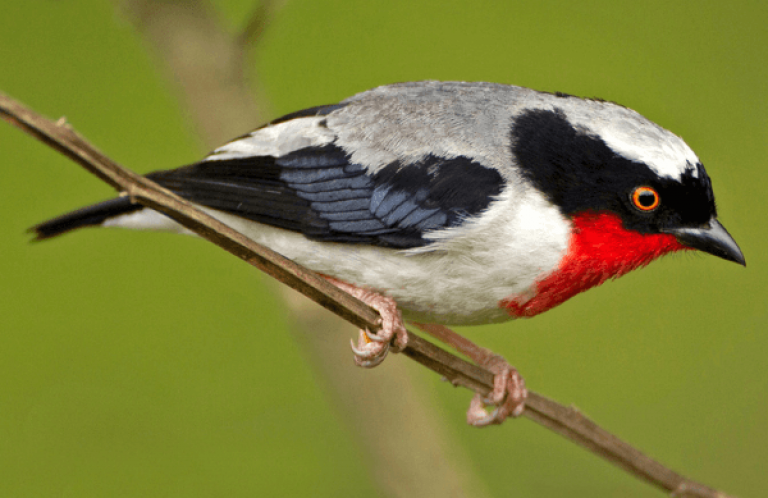Birding's "Biggest Week" Announces Partnership with American Bird Conservancy
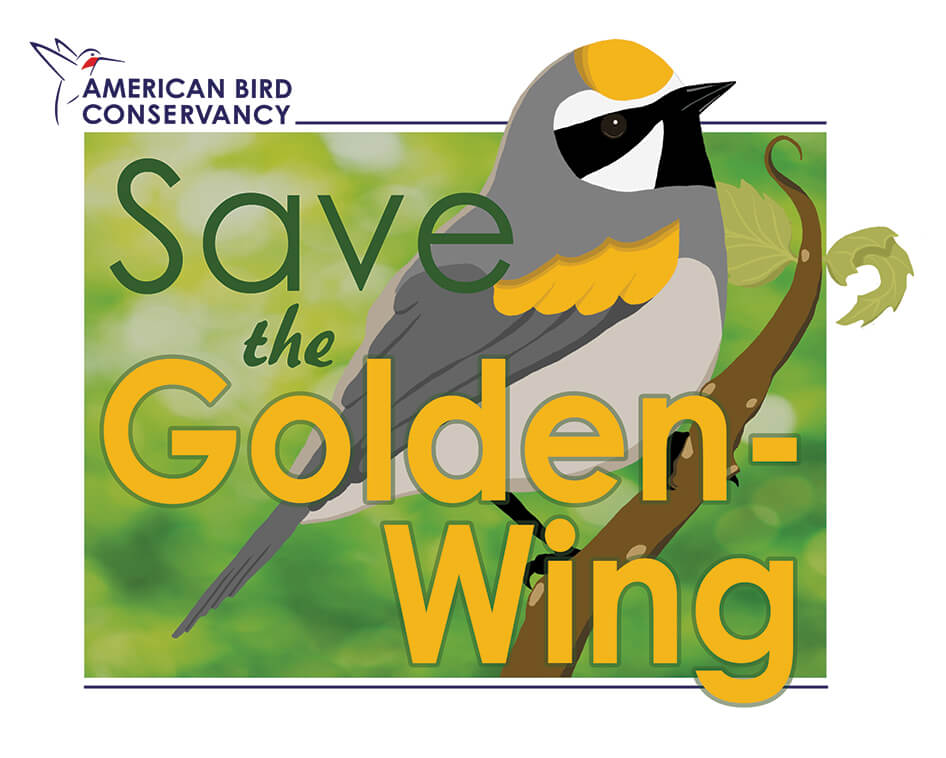 |
(Washington, D.C., February 27, 2014) The annual birding festival known as The Biggest Week in American Birding (“Biggest Week”) will this year feature a suggested $10-per-person donation to help create a habitat corridor in a key wintering area in Nicaragua for the rapidly declining Golden-winged Warbler.
Celebrating its fifth year, the Biggest Week will take place in northwest Ohio from May 6 to 15 and is hosted and organized by Black Swamp Bird Observatory (BSBO). The “Save the Golden-Wing” project will benefit one of the fastest declining songbird species in North America. Estimates are that since 1966, the Golden-winged Warbler has lost about 76 percent of its total population. BSBO's long-term migratory bird research in northwest Ohio reflects this decline, as well.
The project will aid not only the Golden-winged Warbler but also other priority migrants and North American songbirds, such as the Wood Thrush, that overwinter close to El Jaguar, Nicaragua.
Donations to the Save the Golden-Wing project will provide native shade tree saplings to Nicaraguan coffee farmers in conjunction with a community outreach program that focuses on both improving bird habitat and stabilizing watersheds for sustainable farming. The project aims to serve as a model for programs elsewhere in Nicaragua and in nearby Honduras.
“I think the donation program will give birders another dimension of satisfaction, knowing that their Biggest Week activities will not only provide world-class birding but also result in furthering conservation efforts for a declining bird species,” said Dr. George Fenwick, President of ABC.
BSBO Executive Directory Kimberly Kaufman believes the partnership with ABC and the Save the Golden-Wing project is a perfect fit. “Building support for bird conservation is the overarching goal of our festival,” she said. “We're very pleased that this project focuses on reforestation, which not only creates new habitat but also allows visitors to directly offset the carbon footprint of their travel here. I have no doubt that the birding community will embrace this opportunity to help ensure that this spectacular warbler is around for future generations.”
There are two ways to donate to the Save the Golden-Wing project. Participants in the Biggest Week can make a donation as part of the registration process. Those who want to give to the project without attending the event can contribute via a special donation page.
The Biggest Week constitutes the largest birding event in the country and features some of the best birding North America has to offer. It helps attract tens of thousands of people annually and, according to BSBO's post-event economic impact study, injects about $37 million into the local economy. The event offers a large number and variety of guided birding trips, workshops, keynote speakers, and more. The festival is headquartered at Maumee Bay Lodge & Conference Center (which also provides support for the event), with additional vendors and activities at Black Swamp Bird Observatory, Ottawa National Wildlife Refuge, and Magee Marsh Wildlife Area.Support for the event is also provided by Lake Erie Shores and Islands (Ottawa County and Erie County Visitors' Bureau) and Destination Toledo (Lucas County Visitors' Bureau).
Northwest Ohio is the home of the event because it is believed by many to be the best place to witness the spring migration of songbirds anywhere in North America. The southern edge of Lake Erie acts as a barrier that the birds are reluctant to cross during migration. The birds tend to "pile up" in the woodlots surrounded by marshland on the lake's southern edge to rest and refuel before crossing the lake. The timing of their arrival is early enough in spring that the trees have not fully leafed-out, making the birds easier to spot and photograph.
According to a 2011 survey published by the U.S. Fish and Wildlife Service, roughly one in five Americans—about 47 million people—are birdwatchers. They are huge revenue generators for the U.S. economy, spending over $40 billion on equipment and activities related to bird watching. Birding expenditures also created 666,000 jobs and $31 billion in employment income. About $6 billion in state tax revenue and $7 billion in federal tax revenue were derived from birding-related recreational spending.
For inquiries about the event, call BSBO at 419-898-4070 or visit the Biggest Week website.





































